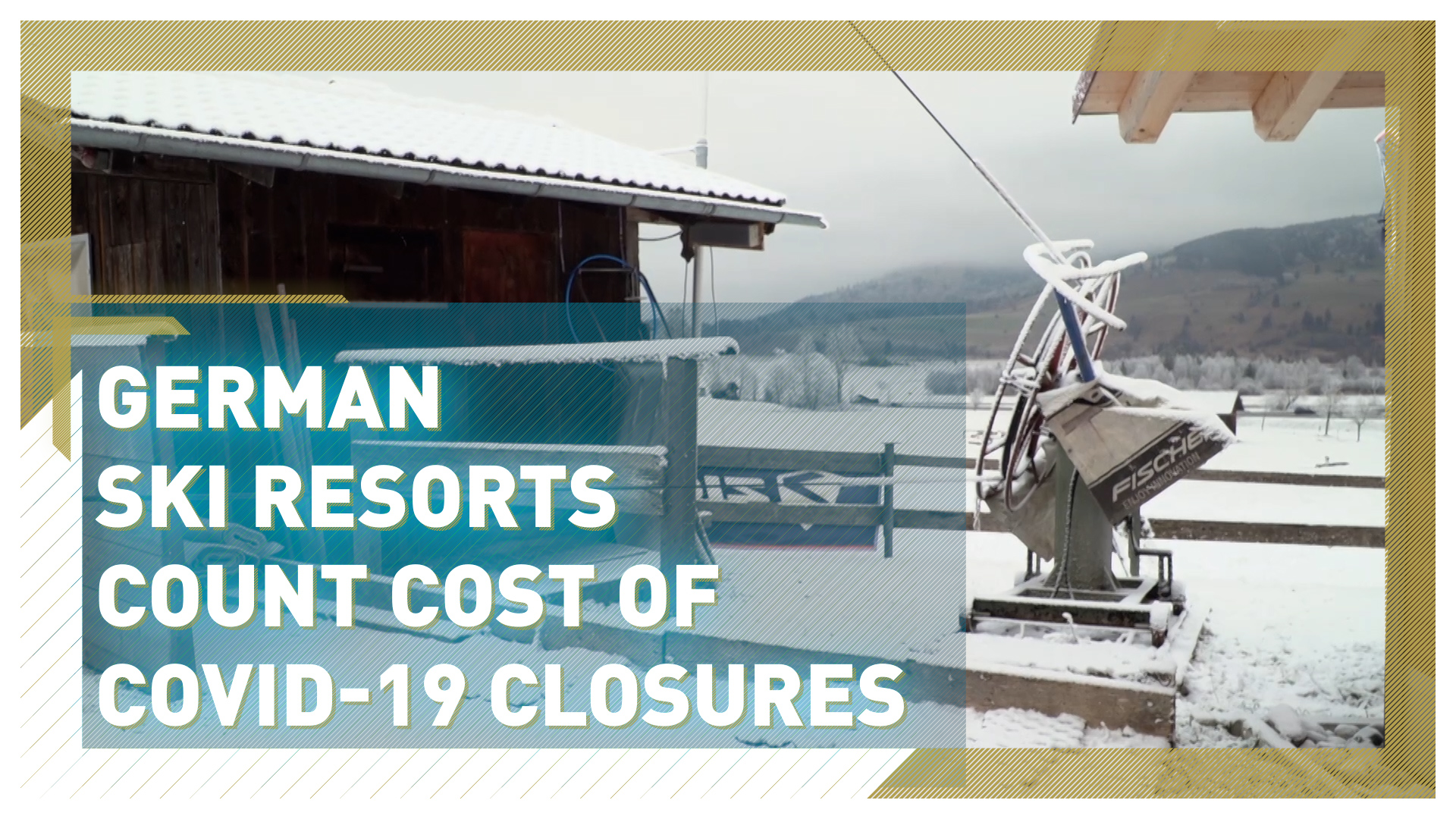03:11

In spring, the Austrian ski resort town of Ischgl made headlines following reports that thousands of visitors had been infected with COVID-19.
With Christmas and New Year celebrations fast approaching and coronavirus numbers still at dangerously high levels, Germany's Chancellor Angela Merkel is calling for all 16 federal states to close their ski resorts until early January and is asking all EU nations to do the same.
While the move is being made to protect public health, those in the ski and winter sport industry in Germany's southern state of Bavaria are questioning the logic behind it.
The Wanklift ski hills in the picturesque town of Oberammergau in the Bavarian Alps operates its two slopes, ski school and ski rental service only in the winter months. These closures will affect a third of their seasonal turnover, according to co-owner Tobias Papistock.

"As of now we are closed over Christmas through to January 10," he says. "This is for us, of course a catastrophe. We have to invest 20,000 euros ($24,000) to open the lifts. It is very difficult to say when we can open, but we have to do everything we can to ensure that we are prepared as soon as we are allowed to open, that we are ready to do it."
His father Peter runs the ski school at Wanklift and says normally there are around 80 or 90 people standing at the office at 9 a.m in the morning to register their children for ski courses.
"We have definitely between 800 and 900 [children] a year," he explains. "This year, if we can't go skiing until January 10, which is a stipulation from the ministry, then 300, 400, 500 will surely miss out."
Many other towns in southern Bavaria, just like Oberammergau, depend on income generated by winter sports tourism.
"The whole impact on winter sports is huge," says Tobias. "Whether it's textile clothing, whether it's skis or anything else, they all live from it. And who is going to buy skis for their child for Christmas when he knows he cannot go skiing for Christmas?"

Germany's Chancellor Angela Merkel is calling for all 16 federal states to close their ski resorts until early January and is asking all EU nations to do the same. /CGTN
Germany's Chancellor Angela Merkel is calling for all 16 federal states to close their ski resorts until early January and is asking all EU nations to do the same. /CGTN
Farther north in the Bavarian Forest, Geisskopfbahn ski resort owner Franz Dominik Freiherr, says 30 percent of its winter revenue will be affected by these closures.
He said: "The Christmas season and over new year is a very strong season for us and that would make a deep impact for us."
He added: "The politicians always talked about what happened at the beginning of the corona pandemic, especially in Austria, especially in Ischgl, with all the after-parties and clubbing. Obviously, this was never the situation here and it will never be. We don't even have that infrastructure."
Peter Papistock says his resort can easily implement social-distancing measures: "We are here in the free nature," he says. "We can keep the distance, we have a double chair lift here between the two mountains, you see we have distance. There is always the distance of 1.5 to 2 meters. When they are waiting, they are wearing masks."
While state governments will compensate the ski resorts for these closures, there are concerns, with what already looks like a good season ahead weather-wise, that the compensation will not be enough.

Peter Papistock runs a ski school in Oberammergau in Germany and says the closure of slopes is a "catastrophe" for the business./CGTN
Peter Papistock runs a ski school in Oberammergau in Germany and says the closure of slopes is a "catastrophe" for the business./CGTN
"You can apply for 75 percent of turnover from December last year," clarifies Franz Dominik Freiherr. "But the issue we have here, is that last year, for example, we had an exceptionally bad winter. So if you would calculate the reimbursement based on last year, it would be almost zero, so that doesn't help."
The idea to shut the country's slopes was put forward by Merkel shortly after she announced that Germany's partial lockdown, which was to end next week, will now be extended to December 20.
According to Germany's center for disease control, while the number of coronavirus infections across Germany is still very high, it is stabilizing.
Italy's Prime Minister Giuseppe Conte has sided with his German counterpart, while France's President Emmanuel Macron has already announced slopes in the French Alpine region will remain shut until 2021.
But Austria, home of the now infamous Ischgl ski resort, has rejected the idea, insisting that skiing is part of the country's national identity. However, Austrian chancellor Sebastian Kurz has forbidden any ski resort after-parties.

